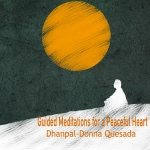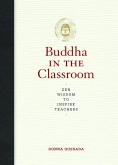 Here is an old story from Indian lore. It takes for granted the spiritual expectation, in Vedic philosophy, that with good karma and spiritual advancement, we may gratefully escape samsara, the seemingly endless cycle of birth and death that keeps us trapped in the torment of our own karma and misery. It also takes for granted the assumption that the Brahmins—the high-caste priests—would have earned the privilege of liberation first. But watch for the twist! Here, The God of time, Narayan—another name for Lord Vishnu—offers a surprising decree. I am retelling the story as I remember it.
Here is an old story from Indian lore. It takes for granted the spiritual expectation, in Vedic philosophy, that with good karma and spiritual advancement, we may gratefully escape samsara, the seemingly endless cycle of birth and death that keeps us trapped in the torment of our own karma and misery. It also takes for granted the assumption that the Brahmins—the high-caste priests—would have earned the privilege of liberation first. But watch for the twist! Here, The God of time, Narayan—another name for Lord Vishnu—offers a surprising decree. I am retelling the story as I remember it.
— — — —
Once on a sunny day near the Ganges, a Brahmin priest, who had just finished his oblations, came across Narada, the messenger of the Gods. After bowing deeply in respect, the Brahmin took the liberty of asking the divine sage for a favor:
Brahmin priest: “Could you be so kind as to ask the supreme Lord, Narayan, when I’m going to be liberated from this world and joined with him in holy bliss? I know it will be soon because of my station, and all, but I would just like to know, all the same.”
Narada: “No problem, my sir. I’ll ask when I see him.”
Further along down the river, a lowly cobbler, fixing shoes by the wayside, also stopped Narada, as he was passing through, and chanced to approach the great emissary:
Cobbler: “Could I appeal to your kindness by asking you to speak to the great God on my behalf?”
Narada: “I’d be happy to.”
Cobbler: “You see, I’m growing more weary each year, and I’d just like to know how many more lifetimes I am doomed to suffer in this material world?”
Narada: “I’ll be sure to pass on your message.”
And Narada continued on, passing seamlessly through to the spiritual world. When he saw the great Lord Narayan, he bowed to his feet, as is the custom in approaching great spiritual masters. The Lord then asked if there was anything he could do for Narada, who proceeded to put forth the concerns of both the priest and the cobbler.
As Lord Narayan can see through the barriers of time, and into eternity, he thus knows all. With a brief pause, he informed Narada of the destiny of his supplicants:
Lord Narayan: “The cobbler will come to me at the end of this present lifetime. But the Brahmin will live through at least 100 more lifetimes.”
Seeing the confused look on Narada’s face, the Lord only smiled and gave these instructions:
Lord Narayan: “Next time you see the cobbler and the priest, they will ask you what I was doing when you saw me. Tell them I was threading an elephant through the eye of a needle. When you see their reactions to this, you will then understand everything.”
So, Narada went on his way. The first man he saw was the Brahmin, who was shocked and insulted by the news:
Brahmin priest: “A hundred rebirths in this hell! I don’t believe it! You probably didn’t even see the Lord! Tell me, what he doing when you saw him?”
Narada: “Threading an elephant through the eye of a needle.”
Brahmin Priest: “Threading an elephant through the eye of a needle? That’s totally absurd! You must be lying about everything!”
So, Narada excused himself and pressed on until he found the cobbler. He gave him the news that he would soon be liberated and would be joining the realm of the Lord at the end of this lifetime, at which point the peasant exclaimed in joy:
Cobbler: “Oh, what blessed and glorious news! But, alas, tell me my good sir, what was the Lord doing when you saw him?”
Narada: “He was threading an elephant through the eye of a needle.”
Cobbler: “Lovely. Absolutely lovely.”
Narada: “You mean, you believe that?”
Cobbler: “Why, sure! You see that huge old oak tree up the hill? It grew from a tiny acorn. So, if the Lord can squeeze a gigantic oak tree into a little seed like that, He can just as easily thread an elephant through the eye of a needle.”
And with that, Narada understood the difference between the priest and the cobbler, as well as why the priest was not yet ready for liberation.








